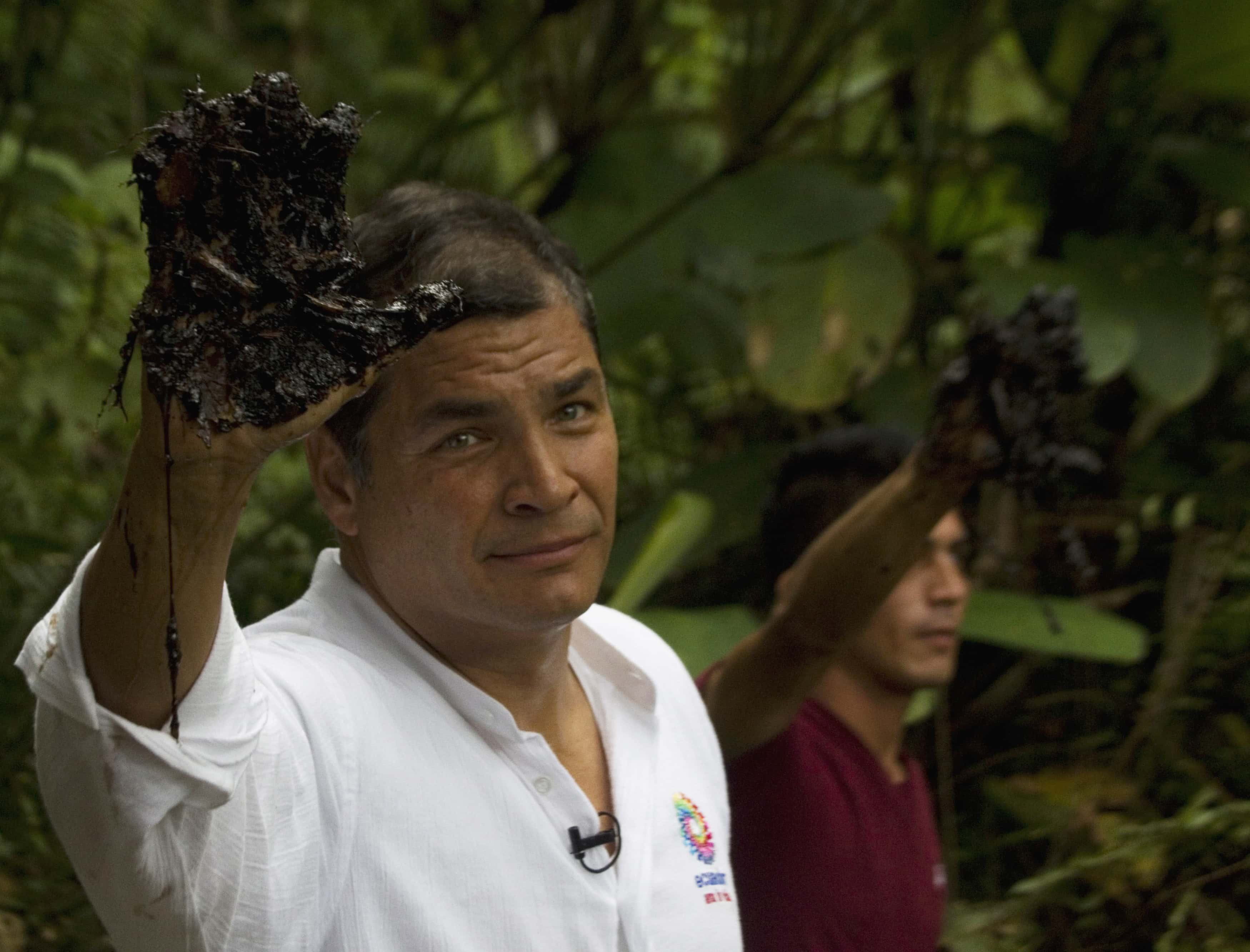On September 21, 2013, President Rafael Correa tore apart copies of three newspapers, El Comercio, La Hora and Hoy. He warned them that they must only publish stories on issues of public interest, as the Communications Law orders.
On September 21, 2013, President Rafael Correa tore apart copies of three newspapers, El Comercio, La Hora and Hoy. He warned them that they must only publish stories on issues of public interest, as the Communications Law orders.
This warning was made during national broadcast N° 340, aired on September 21, while addressing what, in his view, was an example of lack of media coverage of the opening of his campaign “The Dirty Hands of Chevron”. The campaign refers to the legal case that the Ecuadorian State currently has against the Chevron for environmental damage in the Ecuadorian Amazon.
The President said that the campaign was seen worldwide. “It was published everywhere, but here, Diario Hoy just published a tiny piece about this, just to hurt the government, if Chevron breaks us, they will be glad (…) That is prior censorship, manipulation, because this is clearly a matter of public interest and they must publish this news, but since they are private business enterprises, they think they decide what to cover and what not to cover”.
On this matter, the president questioned a headline in El Comercio, “Decision of The Hague Court exonerates Chevron”. The President indicated that the report was based “on a press release by Chevron only (…) This is such a big lie, certain press outlets want Chevron to beat the country”.
“The Communications Law must be enforced, so that in those same eight columns this corrupt press mends this lie. It is not true that the Hague Court exonerated Chevron, this is not true, and if that is the case, then Ecuador will not recognize the competence of that tribunal”. The president then tore up an issue of El Comercio, and said “the corrupt press, is [good for nothing]! And consider that El Comercio is one of the least mediocre newspapers out there, the traitors, the heartless newspapers are La Hora and Diario Hoy”.
Afterwards, the President addressed an article by Diario Hoy about the oil exploitation. The President said: “Look at this villainy, the party members that came to support us in the decision [to exploit the oil blocks within Yasuní National Park], now turns out that they are celebrating, according to Diario Hoy. This is the press we have, this is bad faith, manipulation, politics, this corrupt press is worthless, they are toxic”. Then Correa tore apart an issue of Diario Hoy and then criticized its owner.
Finally, Correa attacked Diario La Hora over an article called “Yasuní: no to popular consultation”. Correa said that the article “is false and biased”. He then challenged that those that oppose exploitation in the Yasuní area gather the requested number of signatures for a public consultation.“This is the press we must confront. Diario La Hora is even worse than El Universo, which is more calm since the Communications Law was passed and because we beat them in court, they got what they deserved. The worst newspaper is La Hora, it’s a tabloid, it’s a shame, it’s poison”. Then the president said that tearing up newspapers is also freedom of expression just as indecent gestures are freedom of expression. I tear up papers as a rejection to the corrupt press. Now I guess that the IACHR will cry”.
This is the fifth time that the President tore up newspapers. The first time was during national broadcast N° 208 of February 2011 with an issue of Diario La Hora.



